MercoPress. South Atlantic News Agency
Tag: plastic pollution
-
Monday, October 15th 2018 - 08:29 UTC
East Falkland, among most plastic contaminated shores in South Atlantic Islands
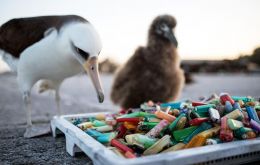
The amount of plastic washing up onto the shores of remote South Atlantic islands is ten times greater than it was a decade ago, according to new research published in the journal Current Biology. Scientists investigating plastics in seas surrounding the remote British Overseas Territories, including East Falkland, discovered they are invading these unique biologically-rich regions. This includes areas that are established or proposed Marine Protected Areas (MPAs).
-
Wednesday, July 11th 2018 - 08:15 UTC
UK funding to fight plastic pollution in St Helena and conservation projects in BOTs
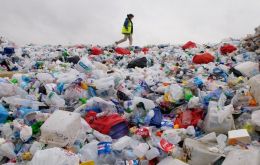
The United Kingdom government has announced a package of funding and support for UK Overseas Territories. The new projects will see a scheme to reduce and monitor plastic pollution on the island of St Helena in the South Atlantic and a new data collecting and reporting system for Montserrat to help create long-term sustainable fisheries.
-
Saturday, June 23rd 2018 - 08:54 UTC
Seabirds starving to death because of plastic pollution reveals documentary

New footage of the devastating impact of plastic pollution on wildlife has been captured by a BBC team. Seabirds are starving to death on the remote Lord Howe Island, a crew filming for the BBC One documentary Drowning in Plastic has revealed. Their stomachs were so full of plastic there was no room for food.
-
Thursday, April 26th 2018 - 08:41 UTC
Major companies launch “UK Plastics Pact” to eliminate plastic packaging by 2025
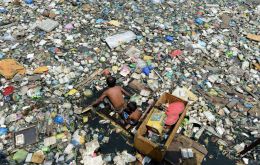
Dozens of companies have signed up to efforts to eliminate unnecessary single-use plastic packaging by 2025, it has been announced. Under the “UK Plastics Pact”, the businesses have also agreed targets to make 100% of their plastic packaging reusable, recyclable or compostable and to ensure 70% is effectively recycled or composted.
-
Monday, April 16th 2018 - 08:40 UTC
UK earmarks £61.4 million to fight the rising tide of plastic pollution in oceans
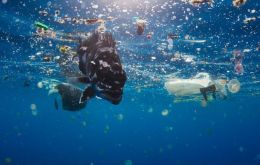
The UK Government has earmarked a £61.4 million war chest to fight the rising tide of plastic pollution in the world’s oceans. Theresa May announced the fund ahead of the Commonwealth Heads of Government meeting in London this week.
-
Thursday, March 15th 2018 - 08:48 UTC
Micro-plastics presence in bottled water controversy; companies argue they operate at highest standards
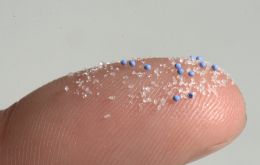
Test on major brands of bottled water have found that nearly all of them contained tiny particles of plastic. In the largest investigation of its kind, 250 bottles bought in nine different countries were examined. Research led by journalism organization Orb Media discovered an average of 10 plastic particles per liter, each larger than the width of a human hair.
-
Wednesday, February 21st 2018 - 09:09 UTC
Oceans' plastic pollution is illegal but, how to implement international treaties and conventions?

The pollution of oceans with plastic litter, discarded nylon fishing nets and eco-toxic micro-beads is well known as one of the great scourges of the modern age ― not just entangling and choking endangered, charismatic species like sea turtles, dolphins and even great whales, but attracting long-lived organic pollutants that end up permeating the entire marine food chain, right up to the fish on our plates.
